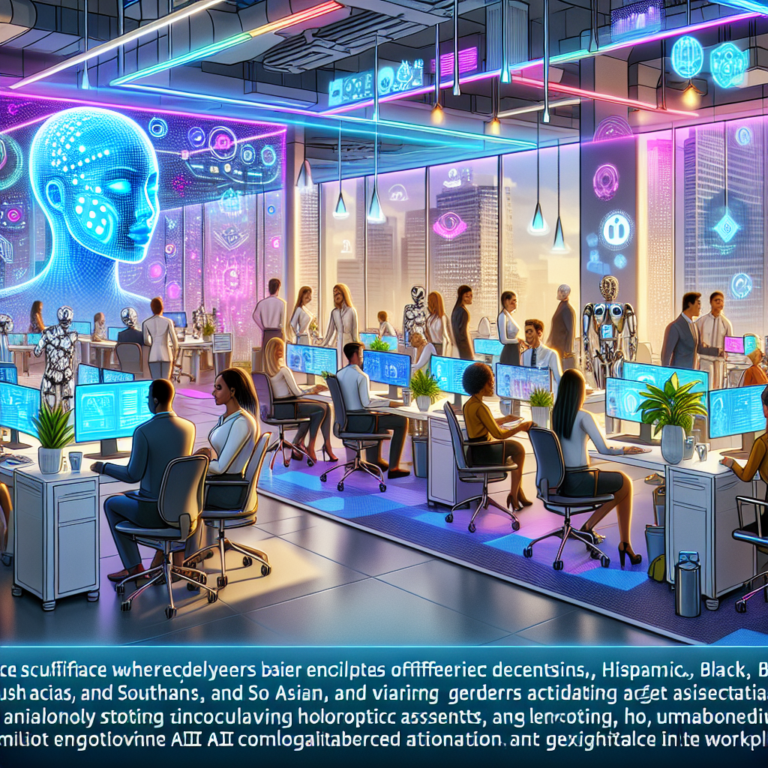Nvidia Introduces New Tools for Enhancing AI Agent Security in Enterprises
Innovative NIM Microservices for Improved AI Control
Nvidia is making significant progress in advancing AI integration within enterprises by launching three new NIM (Nvidia Infrastructure Microservices) offerings. These microservices are tailored, standalone components aimed at enhancing the functionality and security of AI agents. Many organizations seek efficient methods to manage and optimize their AI workflows, and Nvidia is stepping up to meet this demand.
Content Safety and Compliance-Focused Services
The first of the trio of NIM services emphasizes content safety. It actively works to eliminate the risk of AI agents producing harmful or biased outputs, ensuring that interactions remain respectful and constructive. This feature holds significant importance in today’s digital environment, where misinformation and negative content can spread swiftly.
Another key service is designed to maintain conversations within approved topics only. This functionality supports businesses that must strictly follow certain conversation guidelines, guaranteeing AI agents stay aligned with relevant discussions.
Additionally, the third service is aimed at guarding against jailbreak attempts. These attempts seek to bypass software restrictions that guide AI agents’ behavior. By preventing these activities, organizations can retain greater control over their AI settings.
Nvidia’s NeMo Guardrails Initiative
These newly launched microservices are part of the larger framework of Nvidia’s open-source suite known as Nvidia NeMo Guardrails. This collection provides companies with essential resources to strengthen their AI applications. The NeMo Guardrails initiative seeks to enhance the safety and effectiveness of AI technologies, making them more accessible for business needs.
The Significance of Specialized Models in AI Security
As per a recent press release from Nvidia, incorporating multiple lightweight and specialized models serves as effective guardrails for AI workflows. Instead of relying on a single, broad approach, developers can implement targeted solutions to cover specific gaps in security. This method can greatly improve oversight and security in intricate AI operations.
Addressing AI Adoption Challenges in Enterprises
Despite the excitement around AI technologies, the road to widespread enterprise adoption remains more challenging than anticipated. Many industry experts have noted that the rate at which companies adopt AI agents may not align with technological advancements. For instance, Salesforce CEO Marc Benioff has foreseen a rise in AI agent usage as businesses explore their full potential.
However, a recent Deloitte study presents a more cautious outlook, indicating that about 25% of enterprises are currently utilizing AI agents or planning to do so by 2025. The report forecasts an increase to nearly half of enterprises leveraging AI agents by 2027. This variance highlights the tension between rapid technological evolution and slower enterprise adaptation.
Nvidia’s Role in Steering AI’s Future
With these developing insights, Nvidia likely aims to ensure that enterprises feel secure in their use of AI agents. By providing tools that enhance safety and compliance, the company seeks to shift perceptions of AI from being experimental to a viable solution for various business challenges.
Understanding the Importance of AI in Today’s Business Landscape
AI agents offer great opportunities for efficiency and innovation; however, leaders must approach implementation thoughtfully. Organizations must evaluate not only the benefits but also the associated risks of deploying AI technologies. With customized solutions like Nvidia’s newly introduced microservices, companies can navigate these decisions, prioritizing both innovation and security.
Anticipating Future Trends in AI Adoption
The future of AI in business will likely blend rapid innovation with measured integration. As organizations pursue effective AI solutions, the demand for robust safety measures will continue to grow. Companies will need to adapt swiftly while ensuring that their AI systems uphold ethical standards.
- Increased control over AI interactions
- Less risk associated with harmful outputs
- Defense against unauthorized modifications
The Journey Toward Responsible AI Use
As Nvidia promotes these tools, the focus remains on creating a safer, more controlled environment for AI agents. The challenges surrounding AI adoption are not merely technical; they also encompass ethical issues, data privacy, and regulatory compliance.
In the long run, businesses that invest in these areas will likely position themselves at the forefront of the AI evolution. By addressing safety and security concerns proactively, companies enhance their credibility and attractiveness in the marketplace.




0 Comments